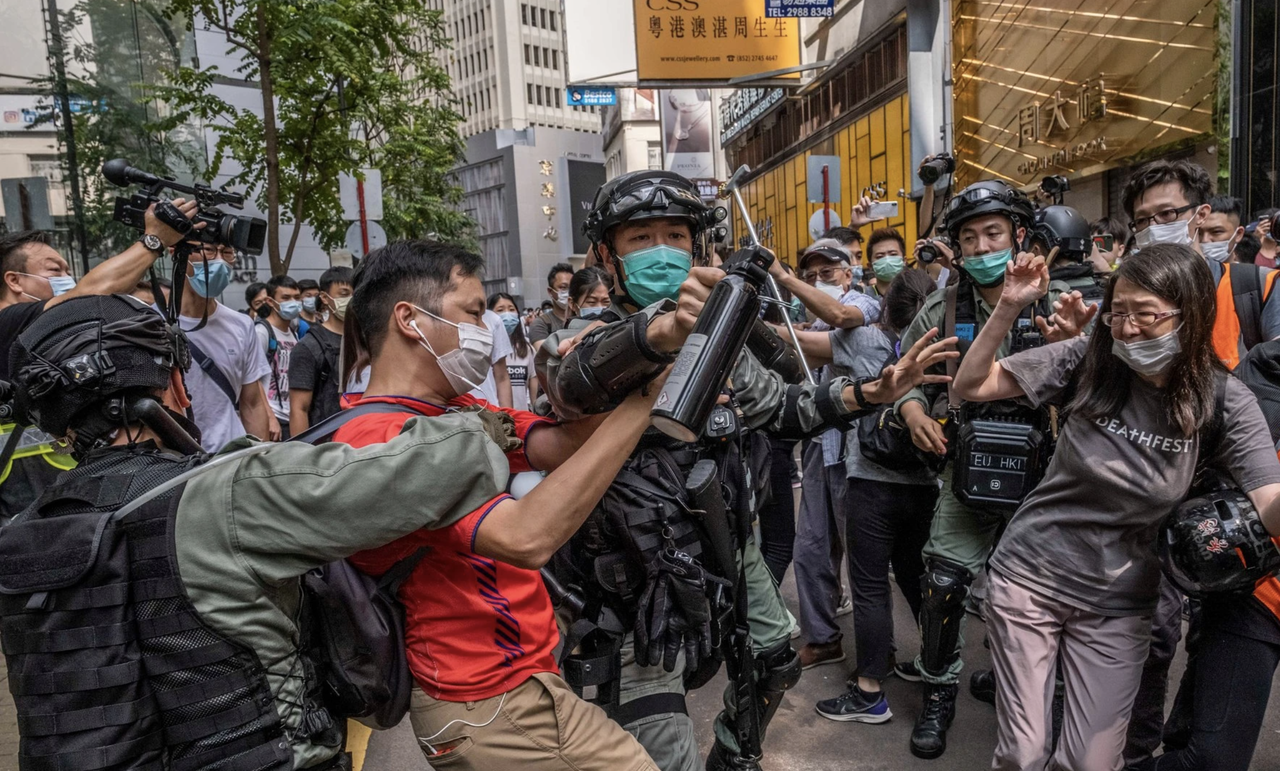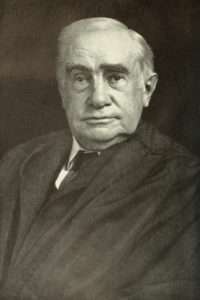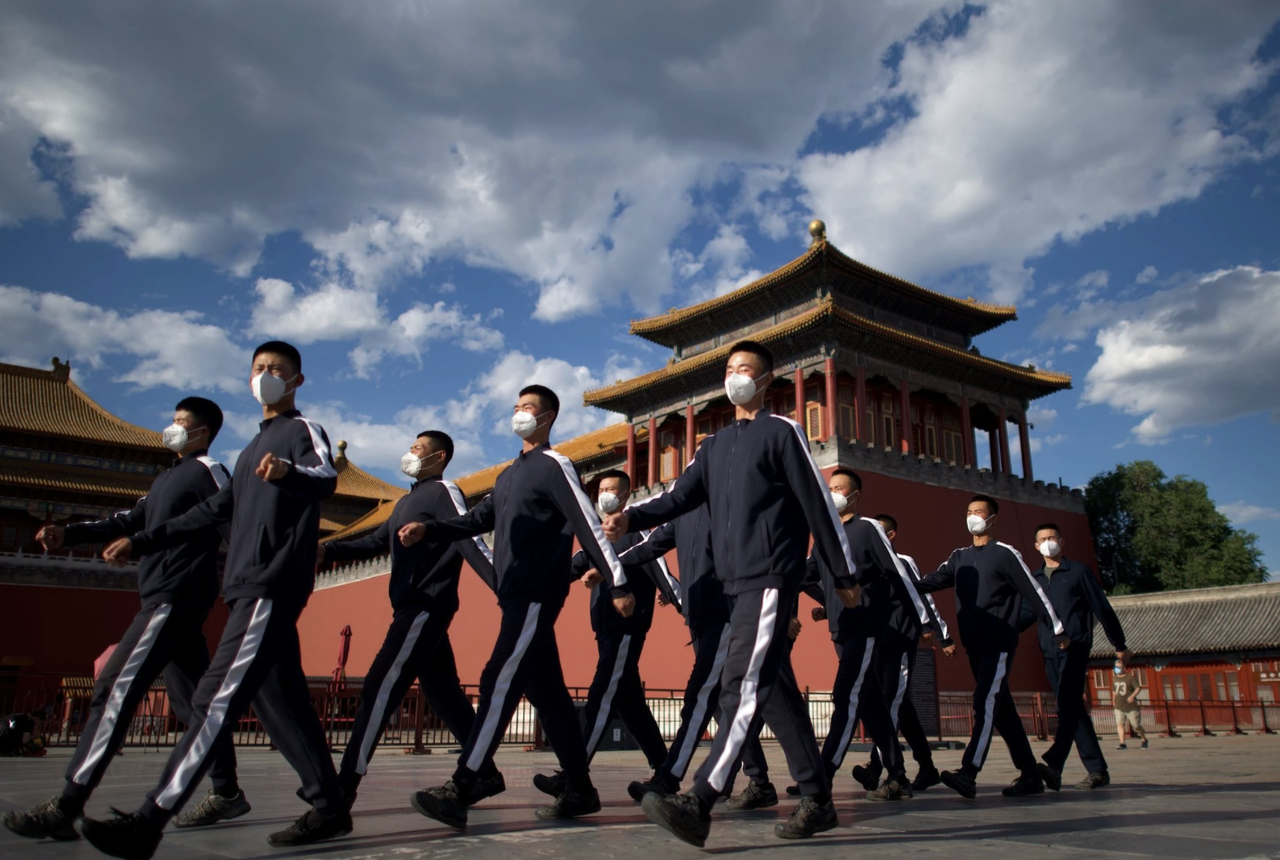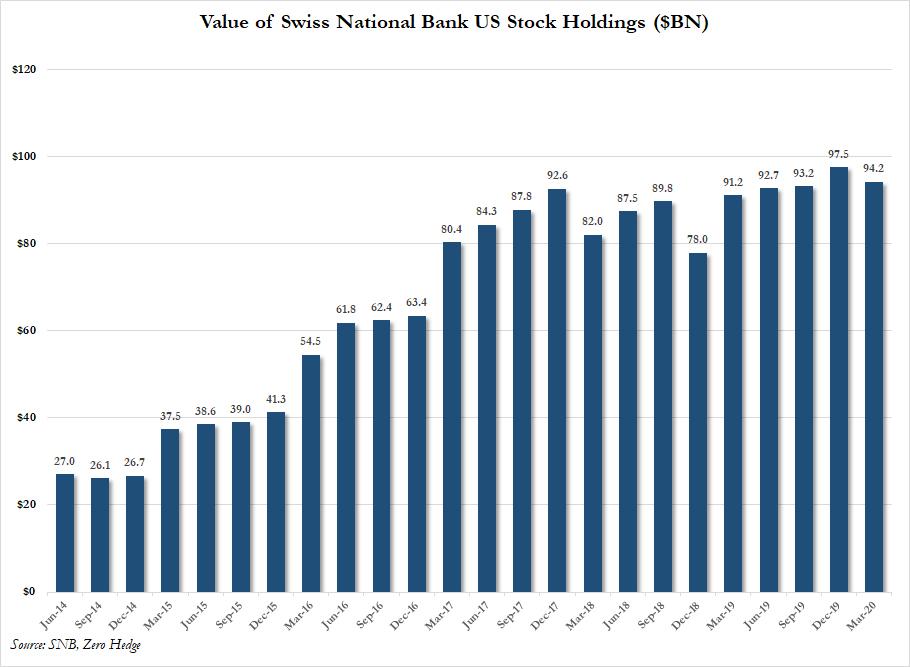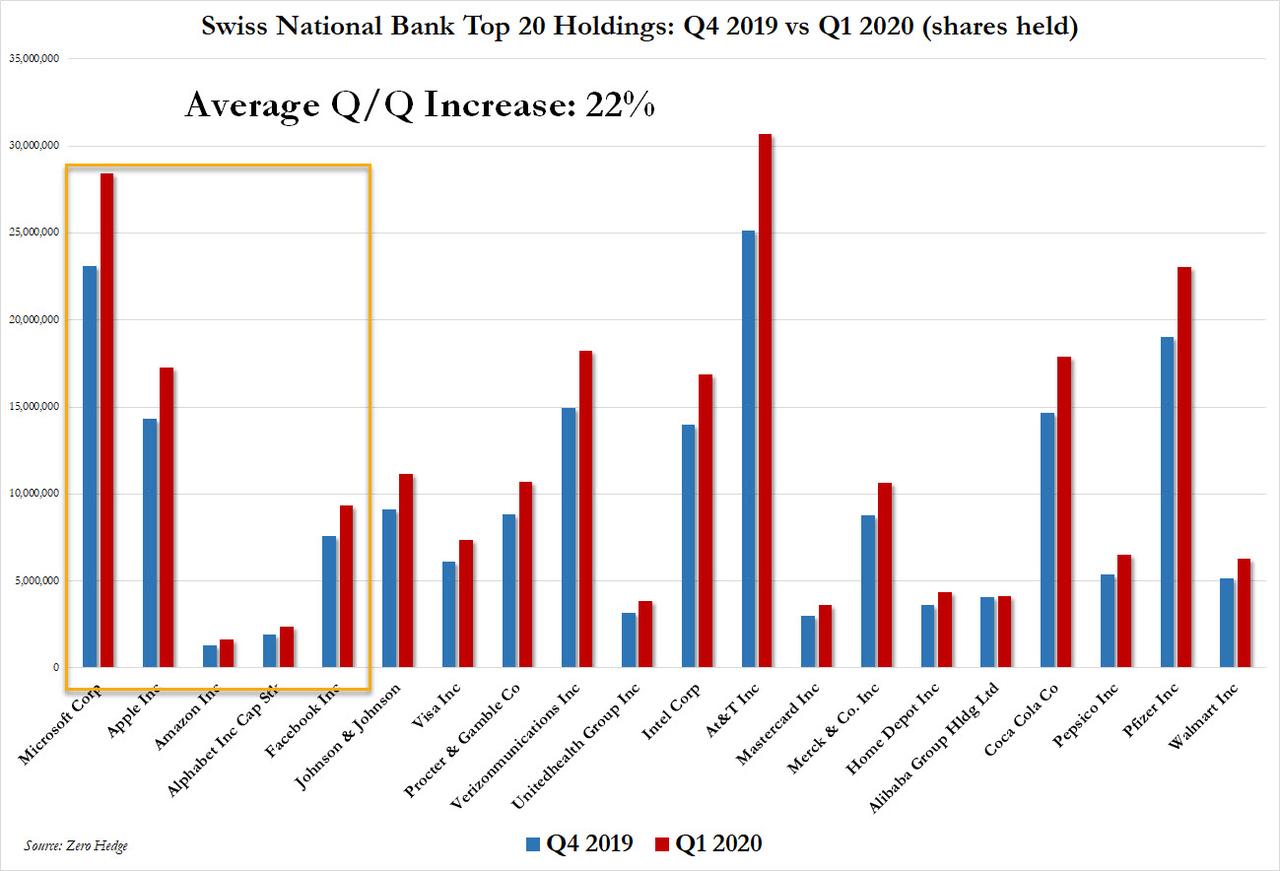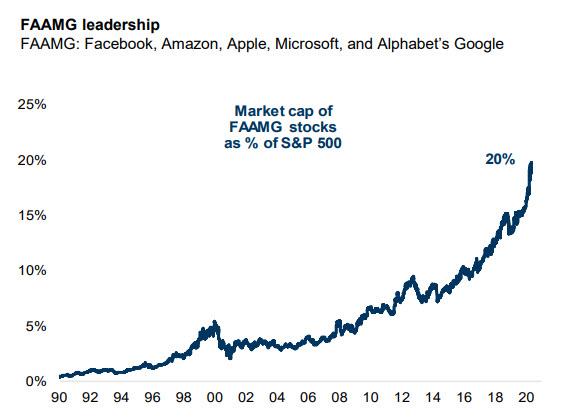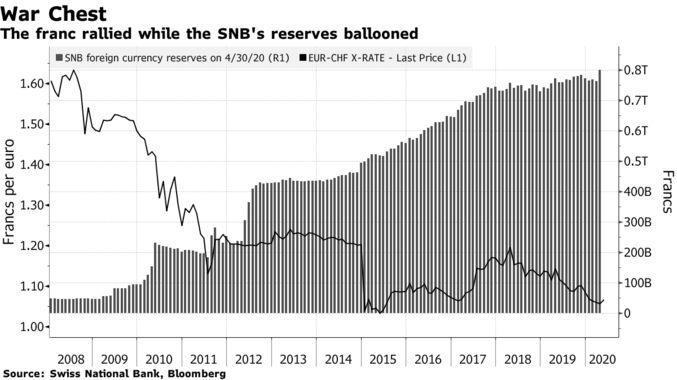“I took this position because I believed in the freedom of the press,” said the nation’s chief censor. That way, he explained, he could “be in a position where I could help to guard it.”
It was 1917, and the assembled members of the media were listening to George Creel, the head of Washington’s wartime propaganda and censorship agency. The federal government had taken an authoritarian turn during World War I, and Creel was in the thick of it. In addition to assisting in the suppression of supposedly seditious material, Creel’s Committee on Public Information (CPI) published agitprop encouraging a Stasi-like state of vigilance. One ad circulated by the committee urged Americans to report anyone who “cries for peace, or belittles our efforts to win the war.”
But Creel kept repeating versions of that guarding-our-freedoms line. At a speech in Indianapolis, he declared that he had “never considered himself a censor”—after all, “censorship plays but a small part in the work of the committee.”
It sounds like a perverse joke. But the really perverse joke is that he meant it.
Woodrow Wilson was, famously, one of the least libertarian presidents in U.S. history. Less famously, he hired several figures with quasi-libertarian pedigrees. From Creel, the censor against censorship, to Newton Baker, the borderline pacifist who became secretary of war, the Wilson years offer a cautionary tale about people’s ability to fool themselves into collaborating with the evils they claim to oppose.
The story begins with Henry George, a 19th century reformer best known for his Single Tax plan: George wanted every tax—especially the tariff, which he particularly loathed—to be replaced with a levy on the unimproved value of land.
Historians sometimes have trouble comprehending George’s place in the political landscape. He is often lumped in carelessly with the critics of laissez faire, though his own views tended toward laissez faire when the subject was not land. And the sheer breadth of his influence is easy to miss, since it cuts across conventional political boundaries. At one end of the Georgist spectrum was the public intellectual John Dewey, whose Single Tax roots did not keep him from endorsing a highly interventionist government. At the other end was Spencer Heath, an engineer and longtime Georgist who came to espouse a sort of landlord-based anarcho-capitalism: Instead of a government taxing land values and using the proceeds to provide services, private “proprietary communities” would charge rent and use the proceeds to provide services.
A surprisingly large number of Georgists entered politics during the Progressive Era. The Progressives of the day are often sorted into two broad categories. One group favored “scientific” management of the economy, coercive moral reform, and a partnership between consolidated industry and the state. The other was skeptical of both big government and big business, favoring reforms that, as the historian Otis Graham put it, largely “stopped short at, and were designed to prevent, the growth of government.”
The Progressive Georgists usually fell into the second group. They were happy to, say, replace a government-enforced franchise monopoly with direct municipal ownership, but they were less enthusiastic about changes that smacked of regulation and regimentation.
That latter tendency was strong in Ohio, where several Georgists became mayors: Tom Johnson and then Newton Baker in Cleveland, Samuel Jones and then Brand Whitlock in Toledo. Many Progressives favored the strict regulation of personal habits, but these mayors (with the partial exception of Baker) were inclined to cut back on policing and to oppose laws that restricted drinking, gambling, or the sex trade. “These libertarian undertones to Georgism gave Ohio progressivism a substantively different tenor than the rest of the country, where it often went hand-in-hand with Christian moralism,” the historian Christopher England wrote in his 2015 doctoral thesis on George’s influence.
This reached its zenith under Jones, who was influenced not just by George but by the pacifist anarchism of Leo Tolstoy. Jones was basically a prison abolitionist: “If I could,” he said, “I would open the penitentiaries.” When the magistrate of Toledo’s police court was absent, Jones would appoint either himself or his assistant—future mayor Whitlock—as acting judge, then dismiss every case.
Jones was long dead by the time Wilson became president in 1913. But Whitlock was eventually made Wilson’s ambassador to Belgium, and several other Georgists took posts in the administration, including Creel at CPI, Baker at the Department of War, and Louis Post as assistant secretary of labor. Albert Jay Nock, a protégé of Whitlock’s who later became a founding father of the modern libertarian movement, did some work for the Department of State. Outside the government, many Georgists had high hopes for the president. Even Spencer Heath was initially enthusiastic.
When the U.S. entered World War I, Nock had already—in the words of the historian Kenneth Gregg—”left in horror over the directions that [Wilson’s] administration was going, never to return to politics again.” But he stayed in touch with his old comrades. “I think you have about the most detestable job in the world,” he wrote to Creel. But, he added kindly, “you are sincere and loyal to the core, and honestly and with splendid industry and diligence trying to make something out of your job that will reflect sincerity and loyalty….If you do not succeed—and you won’t—it is because it isn’t in the job.”
Post could credibly claim to have undermined the administration’s authoritarian policies, having used his position to block thousands of unjust deportations during the postwar Red Scare. It’s much harder to say anything like that about Creel, but he really does seem to have believed that he held back the illiberal tide. Years later, he recalled reading after the U.S. declared war “that some rigid form of censorship would be adopted.” Concerned, Creel “wrote a letter of protest to the President in which I explained to him that the need was for expression not repression.” Wilson hired him, and then…
Well, then the repression began. Creel occasionally interceded to vouch for the loyalty of a group under suspicion, but he spent much more time fomenting paranoia. In a moment that anticipated those Birchite conspiracy theories in which Moscow was manipulating both the civil rights movement and racist vigilante groups, he wrote an article accusing German agents of both inciting whites to lynch blacks and planting “thousands of propagandists among the negroes.” And while Creel disliked the mobs that attacked German Americans and suspected pacifists, he didn’t take responsibility for producing propaganda that might have helped inspire such assaults. Those attacks, he claimed, were themselves incited by the wily Hun.
Creel became convinced that the war itself could be bent to reformist ends, if only the president would make it an anti-imperial struggle. “Before we got into it,” he wrote to Wilson, “our entrance had its chief impulsion from our most reactionary and least democratic elements.” But the president had transformed it from “a reactionary trade-imperialistic war” to “a war for democracy”—for the moment. If Wilson didn’t stand up for the war’s progressive principles, Creel warned, “the reactionary patrioteers will defeat the whole immediate future of reform.”
Baker took a similar view. His appointment as secretary of war turned heads because of his pacifist reputation. But his anti-imperial and anti-aristocratic impulses led him to see the Great War as a chance to overthrow the Old World’s hierarchies. Baker argued before the Cabinet for entering the conflict; England quotes him commenting the next day that “this king business is pretty near over.” Soon he was enforcing conscription and commandeering large swaths of the economy. Never as socially tolerant as Ohio’s other Georgist mayors—he had shut down Cleveland’s vice district in 1914—Baker now launched a crackdown on prostitution near Army and Navy camps, eliminating more than 100 red light districts.
When Nock asked Baker if he could do something to stop the federal assault on the socialist magazine The Masses—”it seems a wretched contemptible business, even for a government,” Nock wrote—Baker agreed to help. But nothing came of it. Instead, Nock himself fell prey to the censors: In 1918, the feds temporarily banned The Nation from transit through the mail because of an anti-war article he had written. Thank goodness his friend Creel was guarding the freedom of the press.

from Latest – Reason.com https://ift.tt/2TLMym6
via IFTTT
